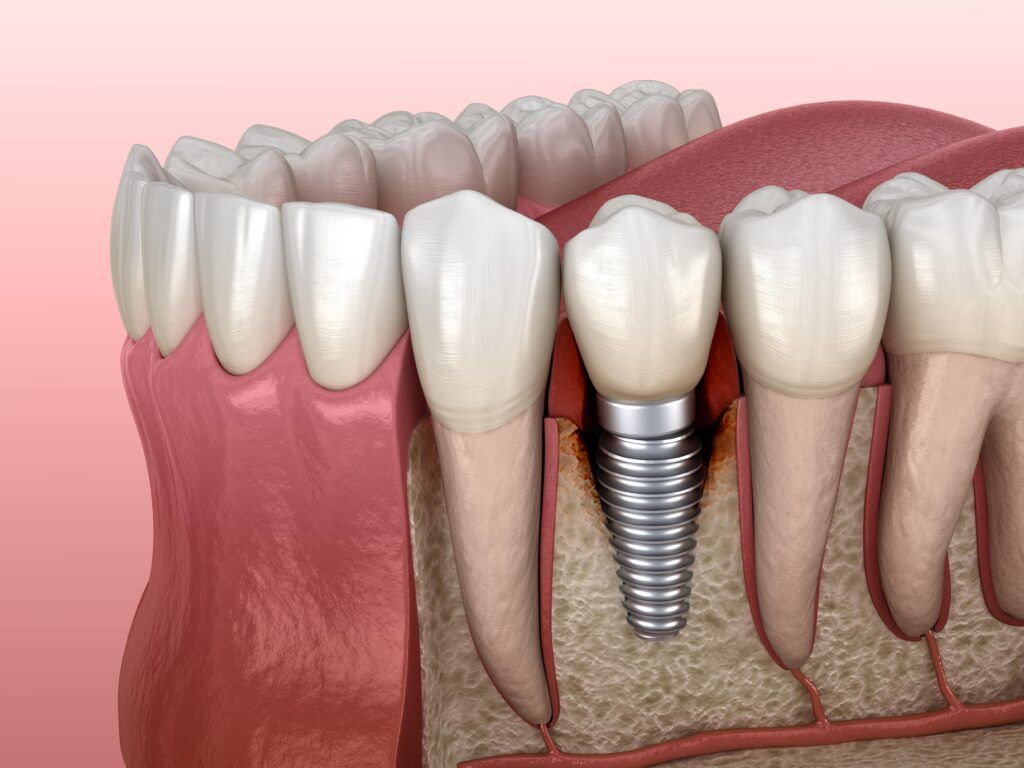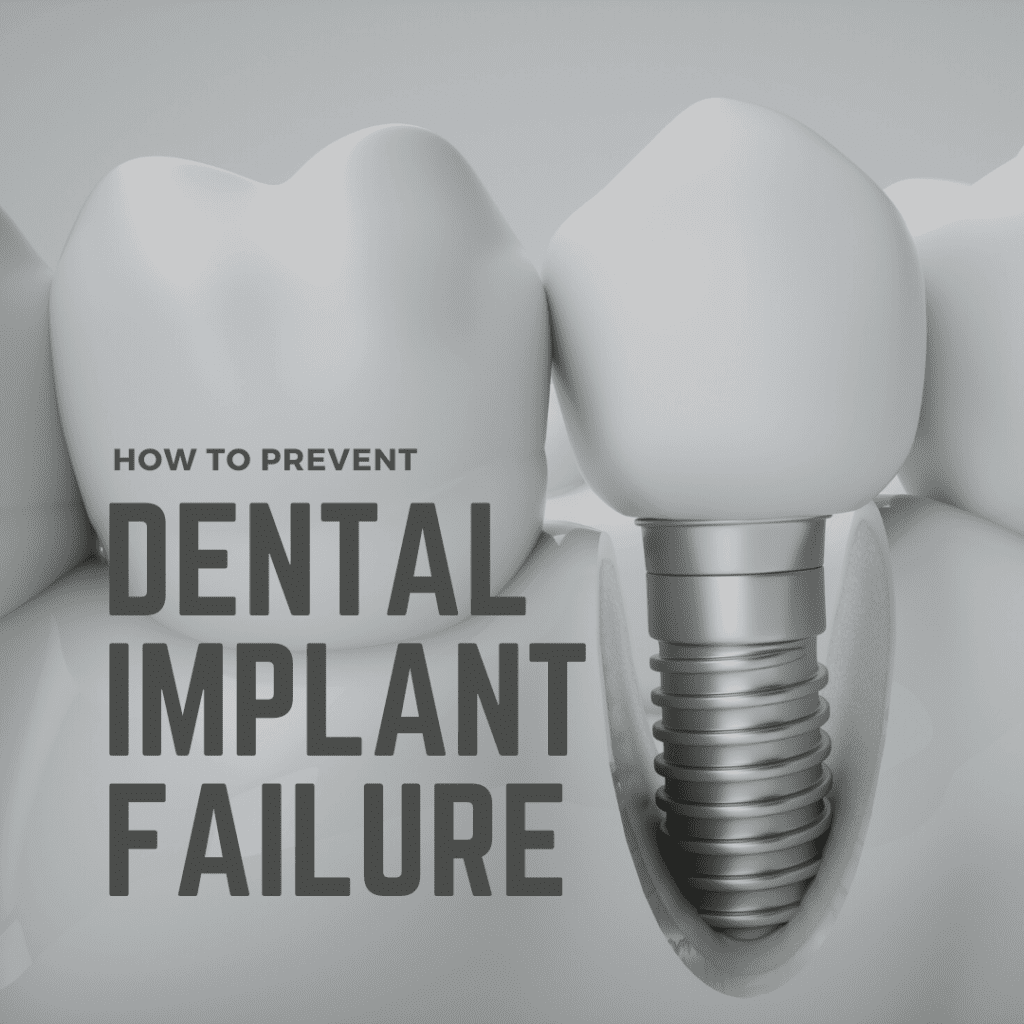Dental implants are a highly successful, safe and permanent solution to missing teeth. However, like most dental procedures, there is always the risk of implant failure. While only around 5% of dental implant procedures fail due to various factors such as infection and poor placement, it’s important to know the causes and how you can prevent dental implant failure. In this blog, we’ll discuss the common causes of implant failure and tips to prevent it.
The most common causes of dental implant failure are infection, poor implant placement, inadequate oral hygiene, and smoking.
Infection
Peri-implant diseases are a range of inflammatory conditions that can affect the implant, surrounding tissues, or both. They can occur at any time after implant placement, but are most commonly seen within the first year. Symptoms can include redness, swelling, pain, and drainage around the implant. Most peri-implant diseases occur as a result of plaque and bacteria that accumulate around the implant. When bacteria spreads to the underlying bone, it can cause the bone to deteriorate and the implant to fail.
The Fix:
The best way to prevent peri-implant diseases is to follow your dentist’s postoperative instructions. This can mean taking certain antibiotics as directed and maintaining good oral hygiene around the implant site. Good oral hygiene includes brushing twice a day, flossing daily, using mouthwash if needed, and attending regular dental checkups and cleanings.
Poor Implant Placement
Poor Implant Placement can be caused by a number of factors such as incorrect angulation or depth placement. If the implant is not placed in the correct position, it can loosen over time and eventually fail.

The Fix:
To prevent poor implant placement, it is important to select a qualified implant dentist who has experience in placing implants. Be sure that you discuss you dentist’s qualifications to ensure that they have the skill set to safely place your implants.
Inadequate Oral Hygiene
If plaque and bacteria are not removed from the implant site on a regular basis, they can cause inflammation and lead to implant failure. Something as simple as gum disease can eventually lead to peri-implant diseases, which can cause the implant to fail.
The Fix:
In order to maintain good oral hygiene around the implant, it is important to brush twice a day, floss daily, use mouthwash if needed, and schedule regular dental checkups and cleanings with your dentist so they can monitor your oral health.
Smoking & Excess Alcohol Consumption
Smoking and drinking alcohol in excess can both increase the risk of implant failure. Smoking can cause decreased blood flow to the gums and oral tissues, leading to a higher chance of infection. Alcohol can also interfere with the healing process after implant placement.
The Fix:
To reduce your risk of implant failure, it is best to avoid smoking and drinking alcohol in excess. In fact, many dentists won’t place dental implants in patients who smoke or consume excess alcohol regularly. Even if you smoke, temporarily stopping can decrease your risk of implant failure.
In Conclusion
Dental implants are a highly successful, safe and permanent solution to missing teeth. While there is always the risk of implant failure, following your dentist’s postoperative instructions and practicing good oral hygiene can help reduce this risk. Additionally, avoiding smoking and drinking alcohol in excess can also help prevent implant failure. If you are considering dental implants, be sure to talk to your dentist about the best way to reduce your risk of failure.


